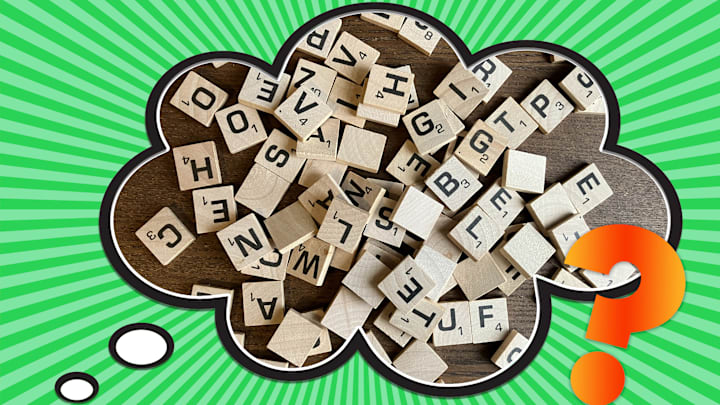When you reach into Scrabble’s drawstring bag of tiles and pull out an x, a q, and a z all in one handful, it’s hard to suppress a small groan. As some of the least frequent letters in the English language, they’re notoriously difficult to place on the board—especially q, considering that it usually (though not always) must be followed by a u.
However, the high values attributed to those rare tiles can easily make up for the struggle of forming words with them. For example, one well-placed z, which is worth 10 points, could boost your score much more significantly than a one-point a or n. It makes sense that less common letters would be worth more points, but how did game makers decide exactly how to distribute them?
It all started during the Great Depression, when an unemployed architect named Alfred Mosher Butts passed the time by studying games like bingo, chess, and anagrams. He came to the conclusion that word-related games weren’t as popular because there simply wasn’t a good way to keep score. So Butts devised his own word game, a fusion of crossword puzzles and anagrams that he called Lexiko, then Criss Cross Words, and finally, Scrabble.

To figure out how to score it, Butts looked no further than the front page of The New York Times. According to the South Florida Reporter, he tallied the number of times each letter appeared in print and used that data to determine two things: how many points each letter would be worth, and how many tiles there would be for each letter.
While the dictionary of words deemed admissible in Scrabble has evolved since the board game first hit shelves around 1950, Butts’s original letter values have remained the same. Every official Scrabble bag contains just one x and one z tile—each worth 10 points—two four-point tiles each for f, h, v, w, and y, and so on.
Find out more fascinating Scrabble facts—including the story of one world championship’s “strip search incident”—here.
Have you got a Big Question you'd like us to answer? If so, let us know by emailing us at bigquestions@mentalfloss.com.
Are you a logophile? Do you want to learn unusual words and old-timey slang to make conversation more interesting, or discover fascinating tidbits about the origins of everyday phrases? Then pick up our new book, The Curious Compendium of Wonderful Words: A Miscellany of Obscure Terms, Bizarre Phrases, & Surprising Etymologies, out June 6! You can pre-order your copy on Amazon, Barnes & Noble, Books-A-Million, or Bookshop.org.
